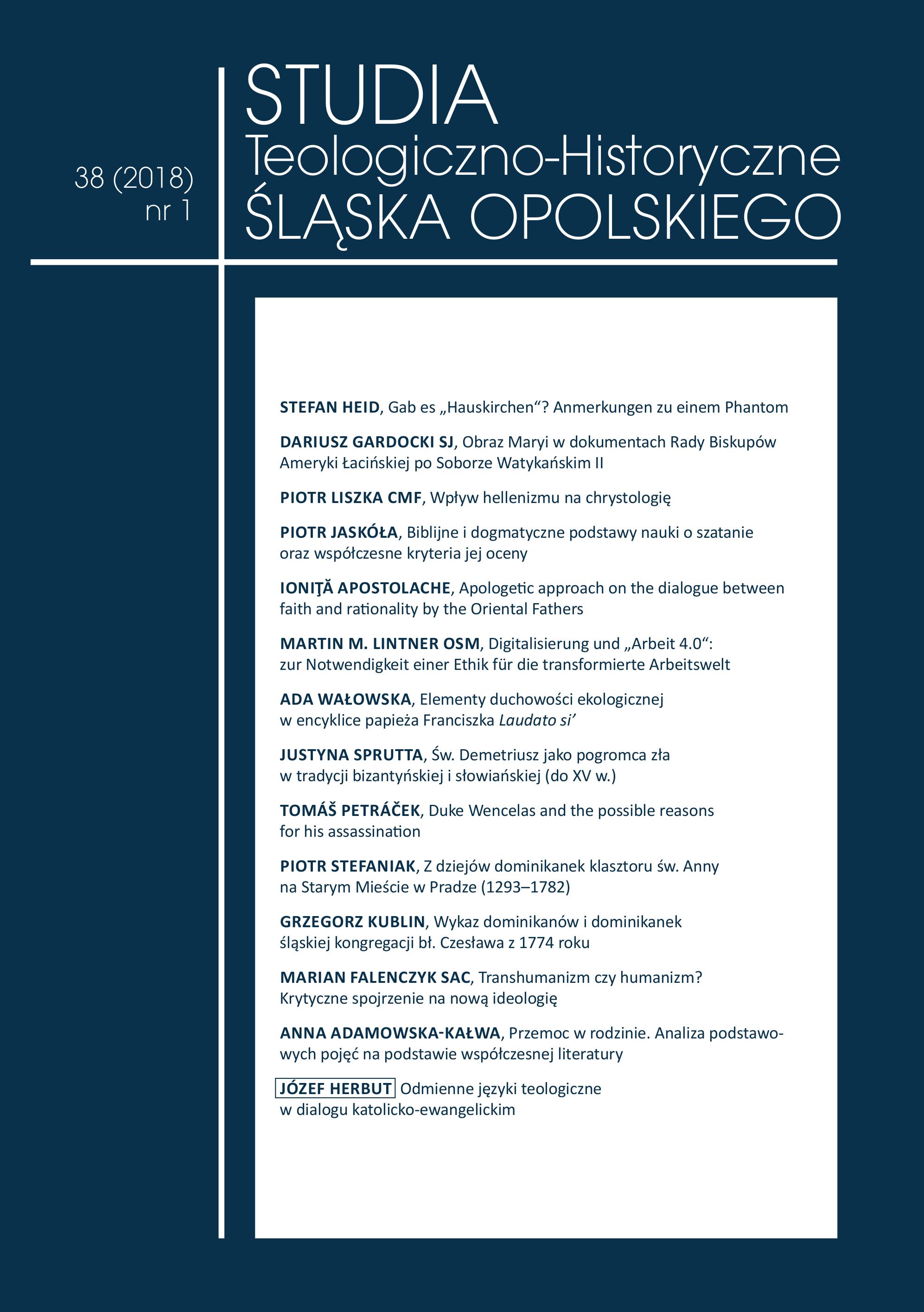Odmienne języki teologiczne w dialogu katolicko-ewangelickim
Different theological languages in Catholic-Evangelical dialogue
Author(s): Józef HerbutSubject(s): Christian Theology and Religion, Semiology, Logic, Special Branches of Philosophy, Theology and Religion, Comparative Studies of Religion, Philosophy of Religion, Philosophy of Language, History of Religion
Published by: Uniwersytet Opolski
Keywords: ecumenism; theological language; universals; nominalism; moderate realism;
Summary/Abstract: The main thesis of the paper states that Catholic theology and Evangelical theology use different languages. The differences stem from the philosophical dispute about universals. The following positions emerged in the debate: radical realism (universalia ante rem), moderate realism (universsalia in re) and nominalism (notitia intuitiva et notitia abstractiva). The language of Catholic theology is a language of moderate realism, while the language of Evangelical theology is a language of nominalism. The linguistic differences result in a different understanding of important theological statements. The paper uses an analysis of selected fragments from a Catholic and an Evangelical catechism as a basis for the demonstration of the way the following issues are understood: (1) knowledge of God, (2) the concept of original sin, (3) the nature of the Church, (4) the origin of sacraments, (5) life in the world to come.
Journal: Studia Teologiczno-Historyczne Śląska Opolskiego
- Issue Year: 38/2018
- Issue No: 1
- Page Range: 301-332
- Page Count: 32
- Language: English, Polish

